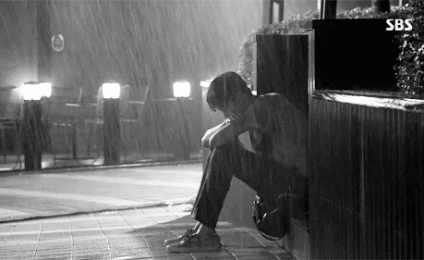Friendships aren’t just a nice bonus in life—they’re essential. They shape how we feel day-to-day, how we bounce back from tough times, and even how long we live. But let’s be honest—building and maintaining solid friendships can feel trickier the older we get. This guide dives deep into why friendships matter and offers real-world ways to grow and sustain them.
Why Having Good Friends Matters So Much
Let’s get one thing straight: good friends aren’t just good company—they’re good medicine. They lift your spirits when you're celebrating something awesome, and they're there to catch you when life gets hard. Loneliness becomes a rare guest when you're surrounded by people who genuinely care about you.
Here’s how quality friendships make a difference in your life:
-
They give you a deeper sense of belonging and purpose.
-
They lower stress levels and can lift your overall happiness.
-
They boost self-confidence and make you feel more valued.
-
They help you navigate tough life events like breakups, illness, job loss, or grief.
-
They can even steer you away from unhealthy habits like excessive drinking or a sedentary lifestyle.
And this isn’t just feel-good fluff—science backs it up. Studies show that adults with strong social networks are less likely to struggle with major health issues like high blood pressure, depression, or obesity. Not only that, seniors with rich social lives often live longer than those with limited connections.
Why It Can Be So Hard to Make (or Keep) Friends
If you've ever felt like friendships were easier to come by when you were a kid, you're not imagining it. Adulthood brings baggage.
Between jobs, kids, aging parents, and life’s endless list of responsibilities, friendships often get shoved to the back burner. People you were once close with might drift away as your interests, priorities, or even zip codes change.
And then there’s the awkward part—meeting new people. It can feel intimidating, especially if you're not naturally outgoing or if you're new in town. But building strong friendships requires intention. The comfort and joy they offer is well worth the energy you put in.
So, How Many Friends Do You Actually Need?
Here’s a simple truth: quality beats quantity.
Sure, having a broad social circle is great, but it’s even more important to have a few close friends who you know will show up for you—whether it’s during a crisis or just a rainy day when you need someone to talk to. A couple of real, loyal friends can carry more weight than a hundred acquaintances.
Ways to Make New Friends That Actually Work
You might have more friendship opportunities than you think. It starts with re-evaluating your existing network. Who have you crossed paths with that left a good impression? Maybe it was a coworker, a former classmate, or someone you briefly talked to at a social event. Reaching out might feel weird at first, but it’s worth it.
You might already know potential friends among people:
-
You've worked with or studied alongside.
-
You were once close to but have drifted from.
-
You’ve had light but pleasant conversations with at parties or meetups.
-
You’re related to through extended family or mutual friends.
If someone stands out, take the leap. Ask a mutual friend to reconnect you. Better yet, reach out yourself. Invite them for a casual coffee, lunch, or a walk—low-pressure and natural.
Of course, meeting brand-new people means putting yourself out there. The more varied your approach, the better your chances.
Try a few of these friendship-building ideas:
-
Check out community events. Whether it's a painting class, book club, hiking group, or dog meet-up, shared interests are a goldmine for connection. Scan bulletin boards, newspapers, or online hubs like Meetup to find local happenings.
-
Volunteer. Giving back at a shelter, museum, or food bank not only feels good—it also puts you shoulder-to-shoulder with people who care about the same causes.
-
Say yes—and extend invites. When someone invites you to something, even if it’s outside your comfort zone, go! And don’t wait for invites—be the one who plans something, even if it’s as simple as a coffee date.
-
Pick up a new hobby. Sign up for a cooking class, yoga session, or photography course. You’ll automatically find people who share your interests.
-
Get involved in a faith or spiritual community. Many offer mixers or “new member” events specifically for making connections.
-
Just take a walk. Sounds simple, but walking your dog or going to a park can spark spontaneous, real conversations with people in your area.
The most important thing is to stay positive and keep trying. Not every attempt will lead to a deep connection—but each one is a step in the right direction.
What About Social Media—Does It Help or Hurt?
This one’s a bit of a mixed bag. On one hand, joining online groups or forums can definitely help you feel less alone and might even lead to a few genuine friendships. You might find someone with similar interests in a Facebook group or online book club, and that can turn into something meaningful.
But here's the caveat: online connections don't always translate to real-world closeness. Studies show that even frequent social media use doesn’t necessarily lead to deeper, offline friendships. And let’s not forget the importance of caution—when dealing with people you meet online, protect your privacy and meet in safe settings if you decide to connect in person.
Final Thoughts on Friendship and Connection
Friendship, in its truest form, is one of the most meaningful parts of being human. It lifts us when we're low, multiplies our joy, and reminds us that we are not alone. Whether you're looking to grow your circle or rekindle old connections, the important part is that you're trying.
Be open, be kind, and don’t let the fear of rejection keep you from reaching out. You never know—your next great friend might be one conversation away.



















